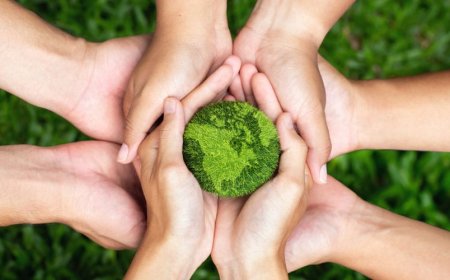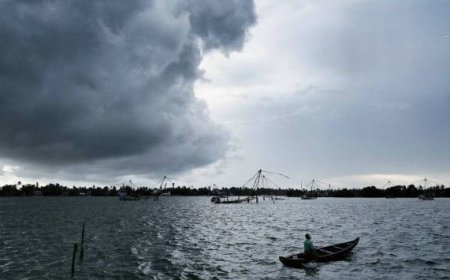Climate change can be disastrous to human existence

CLIMATE change resulting from the greenhouse effect which turns up the dial on global warming has become an accepted fact. Nations worldwide have experienced major climate changes especially with heavy rain, flooding, drought, heat waves, storms, etc. happening with unpredictable frequency.
Identified as far back as 1896, the greenhouse effect is the natural warming of the earth that results when gases in the atmosphere trap heat from the sun that would otherwise escape into space.
An increase in global warming is altering the planet’s climate systems in countless ways. The greenhouse effect is a good thing. It warms the planet to its comfortable average of 15 degrees Centigrade (59 degrees Fahrenheit) and keeps life on earth livable.
Various burning of fossil fuels (diesel, oil, gasoline, etc.) for energy is artificially increasing the greenhouse effect further warming the earth. The main gases responsible for the greenhouse effect include carbon dioxide, methane, nitrous oxide, water vapour (which occurs naturally) and fluorinated gases (which are synthetic)
How do we reduce the formation of these gases to reduce global warming?
Carbon dioxide is absorbed by carbon sinks such as plants, soil and the ocean. Fluorinated gases are destroyed by sunlight in the far upper atmosphere. Rescuing fossil fuel burning to produce energy and gasoline burning by vehicles can be done by using alternate energy like solar; wind and hydraulics can reduce the formation of carbon dioxide and nitrous oxide.
Deforestation has a major impact on the ability to reduce carbon dioxide in the air. Therefore, we should implement replantation wherever we can, which will help reduce carbon dioxide in the atmosphere.
The burning of fossil fuels, coal and diesel for energy production and other industrial production continues to increase the concentration of greenhouse gases, which ultimately result in the greenhouse effect and global warming. The same impact is there with bursting gasoline by vehicles.
It has been accepted by all countries that greenhouse gas emission resulting in global warming and climate change is real. If we do not reduce these emissions considerably, there will be major environmental impacts like rising water levels in the ocean and extreme weather conditions.
The Global Climate Agreement or Paris Agreement, signed by almost all countries of the World in 2015, is the most recent step requiring all countries to set emission reduction pledges.
Governments set targets, known as nationally determined contributions (NDCs), to prevent the global average temperature from rising 2 degrees C or 3, 6 degrees F above preindustrial levels and pursue efforts to keep it below 1.5 degrees C or 2.7 degrees F.
It also aims to reach global NetZero emissions, where the amount of greenhouse gases emitted equals the amount removed from the atmosphere, in the second half of the century. This is also known as being climate neutral or carbon neutral.
Every five years, countries are supposed to assess their progress towards implementing the agreement through a process known as the global stocktake, the first planned for 2023. Countries set their own targets and there is no enforcement mechanism.
The impact of global warming is climate change resulting in extreme weather conditions like heat waves, droughts, floods and rising seas. Millions of people live in the coastal regions that will be submerged in the coming decades. Small island nations are particularly vulnerable. Because of climate changes, more insects, plants and vertebrates will be at risk of extinction.
As individuals what can we do to reduce the emission of greenhouse gases?
We can plant more trees and plants, which will absorb carbon dioxide and emit oxygen into the atmosphere. We can conserve energy, use less energy by cutting down our heating and cooling, switch to LED light bulbs and energy-efficient appliances, wash our laundry with cold water and hang it to dry instead of using the dryer. Use alternate power like solar. We can create awareness among the people and influence the government to take appropriate action.
The roadways all over the world are clogged with vehicles, most of them burning diesel and gasoline. Walking or riding a bike instead of driving will reduce greenhouse gas emissions. For long-distance travel, take the bus or train.
Eating more vegetables, fruit, whole grains, nuts and seeds, and less meat and dairy, can significantly lower your impact on the environment. Producing plant-based foods generally results in fewer greenhouse gas emissions and requires less energy, land and water.
Climate change resulting from global warming due to greenhouse gases in the atmosphere poses many threats to the health and well-being of people.
Climate change affects the food we eat, the air we breathe, the water we drink, and the places that provide us with shelter. Climate change alters the frequency or intensity of extreme weather events and the spread of certain pests and diseases.





































































